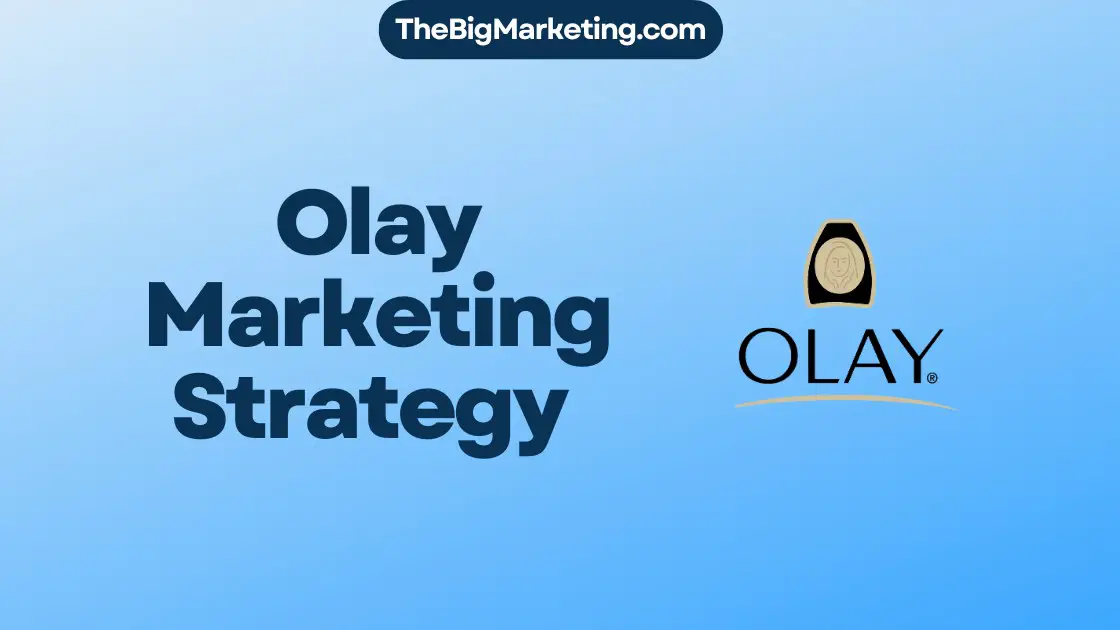Marc Jacobs, a renowned luxury fashion brand, has implemented a unique and innovative marketing strategy that has propelled its success in the industry. With a focus on digital marketing and a deep understanding of its target audience, Marc Jacobs has positioned itself as a trendsetter and captured the attention of fashion enthusiasts worldwide. This article explores the key components of Marc Jacobs’ marketing strategy, highlighting its prowess in the digital space and its ability to engage with its audience effectively.
Key Takeaways:
- Marc Jacobs has successfully established itself as a leading luxury fashion brand.
- The brand’s digital marketing approach has played a crucial role in its success.
- Marc Jacobs excels in understanding and engaging with its target audience.
- Influencer partnerships have helped increase brand visibility and reach.
- The brand’s focus on innovation and creativity sets it apart from competitors.
Target Audience Analysis
Marc Jacobs recognizes the significance of conducting thorough target audience analysis to create impactful marketing campaigns. Through extensive market research and leveraging social media platforms, the brand gains insights into the preferences and interests of its audience. This data-driven approach allows Marc Jacobs to tailor its messaging and engage with its audience on a personal level, fostering a strong sense of connection and brand loyalty.
By closely examining the characteristics and behaviors of its target audience, Marc Jacobs gains a deeper understanding of their needs and desires. This enables the brand to craft marketing strategies that resonate with their audience, effectively positioning itself as a leader in the luxury fashion industry.
Social media engagement plays a crucial role in Marc Jacobs’ target audience analysis. The brand actively monitors and analyzes the interactions and conversations happening on social media platforms to gain valuable insights into consumer behaviors and preferences. By harnessing the power of social media, Marc Jacobs is able to stay in tune with the latest trends and effectively engage with its target audience.
Key Findings from Target Audience Analysis:
- The majority of Marc Jacobs’ target audience comprises fashion-forward individuals between the ages of 18 and 35.
- Social media platforms such as Instagram, TikTok, and YouTube are the primary channels through which the target audience engages with the brand.
- Key interests of the target audience include fashion, beauty, lifestyle, and self-expression.
- The target audience appreciates the brand’s unique designs, high-quality craftsmanship, and commitment to sustainability.
- Emotional connection and authentic brand experiences are significant factors that drive engagement and loyalty among the target audience.
Brand Positioning
Marc Jacobs has solidified its position as a fashion powerhouse through strategic brand positioning in the luxury fashion industry. The brand’s success can be attributed to its comprehensive competitive analysis and deep understanding of market trends. By identifying and capitalizing on gaps in the market, Marc Jacobs has carved out a distinct identity that sets it apart from its competitors.
One of the key factors contributing to Marc Jacobs’ brand positioning is its innovative designs. The brand consistently pushes boundaries and explores new creative territories, resulting in unique and captivating collections. This commitment to innovation has not only garnered attention but has also established Marc Jacobs as a trendsetter in the industry.
High-quality craftsmanship is another vital element of Marc Jacobs’ brand positioning. The brand maintains a strong emphasis on crafting products that are built to last, using premium materials and meticulous attention to detail. This commitment to quality has resonated with consumers who value durability and craftsmanship, further solidifying Marc Jacobs’ reputation as a luxury fashion brand.
The rebellious spirit inherent in Marc Jacobs’ designs has also contributed to its brand positioning. The brand embraces individuality, challenges norms, and encourages self-expression. This unique approach to fashion appeals to individuals who seek to stand out and make a statement, attracting a loyal customer base and reinforcing the brand’s rebellious image.
In summary, Marc Jacobs’ brand positioning is a result of its in-depth competitive analysis, innovative designs, high-quality craftsmanship, and rebellious spirit. By understanding the market landscape and leveraging its strengths, Marc Jacobs has successfully positioned itself as a top player in the luxury fashion industry.
Digital Marketing Approach
Marc Jacobs recognizes the immense potential of digital marketing in reaching a wider audience and forging meaningful connections with consumers. As a prominent luxury fashion brand, Marc Jacobs has incorporated a comprehensive digital marketing approach into its overall strategy, leveraging various social media platforms to maximize its reach and impact.
Through strategic content creation and engagement strategies, Marc Jacobs has successfully captured the attention of its target audience, generating substantial brand awareness and driving customer engagement. By embracing the power of influencer partnerships, the brand has further amplified its digital presence and expanded its reach to new and diverse demographics.
Influencer Partnerships
One of the key components of Marc Jacobs’ digital marketing approach is its strategic collaborations with influencers. By partnering with influential individuals in the fashion and beauty industry, Marc Jacobs taps into their established and engaged following, harnessing their influence to promote its products and brand.
These influencer partnerships enable Marc Jacobs to reach a wider audience organically, leveraging the trust and credibility that influencers have built with their followers. By aligning with influencers whose values and aesthetics resonate with the brand, Marc Jacobs ensures that its messaging remains authentic and relatable.
Through carefully curated influencer collaborations, Marc Jacobs not only expands its reach but also taps into niche communities and subcultures, solidifying its position as a fashion authority and trendsetter. The brand’s influencer partnerships allow it to seamlessly integrate its products into the lifestyles and narratives of its target audience, creating organic and genuine connections.
Overall, Marc Jacobs’ digital marketing approach, including its influencer partnerships, showcases the brand’s commitment to embracing innovative strategies to engage with its audience and stay ahead in the ever-evolving digital landscape.
Social Media Engagement
Marc Jacobs excels in creating engaging and interactive content on social media platforms. The brand leverages platforms such as Instagram and TikTok to showcase its latest collections, behind-the-scenes footage, and collaborations. By fostering a sense of community and encouraging user-generated content, Marc Jacobs has cultivated a loyal following of brand advocates who actively engage with and promote the brand.
On Instagram, Marc Jacobs leverages its visually striking designs and videos to captivate its audience. The brand’s feed features a mix of high-quality product photographs, runway shots, and lifestyle content that resonates with fashion enthusiasts. By making use of Instagram’s variety of features, such as Stories and IGTV, Marc Jacobs ensures a constant stream of fresh and engaging content.
Additionally, TikTok has become a key platform for Marc Jacobs to connect with a younger demographic. The brand utilizes the platform’s short-form video format to create fun and entertaining content, often featuring popular TikTok creators and influencers. Through challenges, dances, and fashion tips, Marc Jacobs engages with its audience in a way that feels authentic and relatable.
One notable aspect of Marc Jacobs’ social media strategy is its emphasis on user-generated content. The brand actively encourages its followers to share their own photos and experiences with Marc Jacobs products, using branded hashtags and interactive campaigns. This approach not only strengthens the brand’s relationship with its customers but also serves as a form of social proof, as genuine user content showcases the impact of Marc Jacobs on real individuals.
Building a Community
Marc Jacobs’ focus on social media engagement goes beyond simply showcasing products. The brand aims to build a community of loyal followers who feel connected to the brand on a deeper level. By creating a sense of inclusivity, Marc Jacobs fosters a space where fashion enthusiasts can interact with each other and share their passion for the brand.
From live Q&A sessions with designers and models to exclusive behind-the-scenes content, Marc Jacobs gives its audience unique access to the world of fashion. By providing valuable and exclusive content, the brand rewards its followers for their loyalty and creates a sense of exclusivity that further strengthens the bond between the brand and its audience.
In conclusion, Marc Jacobs’ social media engagement strategy is a key driver of its success in building brand loyalty. By leveraging platforms like Instagram and TikTok, and by actively encouraging user-generated content, Marc Jacobs creates an inclusive community that fosters deep connections with its audience. Through captivating content and authentic interactions, the brand continues to cultivate a loyal following and solidify its position as a leader in the luxury fashion industry.
Innovation and Creativity
Marc Jacobs is renowned for its ability to execute innovative and creative marketing campaigns that captivate audiences and leave a lasting impact. The brand is dedicated to pushing boundaries and challenging traditional marketing norms to create memorable experiences that resonate with consumers.
One of the ways Marc Jacobs showcases its innovation is through immersive fashion shows that blur the lines between fashion and art. By transforming traditional runway presentations into theatrical spectacles, the brand creates an atmosphere that transports attendees into a different world, sparking their imagination and igniting their sense of wonder.
Unique collaborations are another driver of Marc Jacobs’ creative marketing campaigns. The brand partners with artists, musicians, and other creative influencers to infuse its campaigns with unique perspectives and fresh ideas. These collaborations allow Marc Jacobs to tap into different creative industries and create campaigns that are truly one-of-a-kind.
Campaign Example: “Snapshot” Collection
An example of Marc Jacobs’ innovative and creative marketing approach is the “Snapshot” collection campaign. This campaign featured a series of visually striking advertisements that showcased the brand’s signature handbags in unconventional settings. The campaign challenged the notion of traditional handbag advertising by presenting the bags in unexpected and eye-catching ways, capturing the attention of fashion enthusiasts and setting Marc Jacobs apart from its competitors.
Marc Jacobs is also known for its thought-provoking advertisements that tackle societal issues and spark conversations. These ads go beyond simply selling products; they aim to make a statement and connect with consumers on a deeper level. By addressing relevant topics and tapping into cultural conversations, Marc Jacobs establishes itself as a brand that is not afraid to take risks and use its platform for social impact.
| Campaign | Key Features |
|---|---|
| “Snapshot” Collection | – Unconventional advertisement settings – Eye-catching visuals – Unique and unexpected approach |
| “Defining Moments” Campaign | – Thought-provoking messaging – Addressing societal issues – Sparking conversations |
| “Rebellious Spirit” Collaboration | – Partnering with influential artists – Infusing creativity from different industries – Breaking boundaries and norms |
Influencer Partnerships
Collaborating with influencers has been a key component of Marc Jacobs’ marketing strategy. The brand recognizes the power of leveraging influential individuals in the fashion and entertainment industry to promote its products and create a buzz around its brand. By partnering with popular fashion icons, bloggers, and celebrities, Marc Jacobs has been able to reach new audiences and tap into their engaged followings.
These influencer partnerships serve a dual purpose for Marc Jacobs. Firstly, they significantly increase brand visibility, as the influencers’ large and dedicated fan bases are exposed to the brand through their curated content. This exposure helps Marc Jacobs expand its reach and engage with potential customers who might not have been exposed to the brand otherwise.
Secondly, these collaborations allow Marc Jacobs to stay at the forefront of cultural trends and maintain its position as a fashion leader. By aligning with influencers who are known for their style and influence, Marc Jacobs showcases its products in a relevant and cutting-edge context. This association with trendsetters positions the brand as both aspirational and accessible, appealing to a wide range of fashion-forward consumers.
One notable influencer collaboration for Marc Jacobs is its partnership with the renowned fashion and lifestyle influencer Chiara Ferragni. As an international fashion icon and successful entrepreneur, Chiara Ferragni’s collaboration with Marc Jacobs helped the brand garner significant attention and resonate with a global audience.
Influencer Partnership Case Study: Chiara Ferragni x Marc Jacobs
| Collaboration Details | Results |
|---|---|
| Chiara Ferragni’s limited-edition capsule collection with Marc Jacobs | Increased brand exposure and visibility through Chiara Ferragni’s extensive social media reach |
| Joint promotional campaigns across multi-channel platforms | Generated buzz and excitement among fashion enthusiasts worldwide |
| Exclusive events featuring Chiara Ferragni as the face of the collaboration | Heightened brand perception and association with a top fashion influencer |
Brand Loyalty Initiatives
Marc Jacobs understands the value of building and maintaining brand loyalty, implementing various initiatives to reward loyal customers and foster long-term relationships. By offering exclusive events and personalized shopping experiences, Marc Jacobs ensures that its customers feel valued and appreciated. Additionally, the brand provides loyalty programs and special discounts to further incentivize repeat purchases and enhance customer retention.
One of Marc Jacobs’ key brand loyalty initiatives is hosting exclusive events. These events offer loyal customers the opportunity to engage with the brand in unique and memorable ways, fostering a sense of exclusivity and creating a strong emotional connection. Whether it’s a private fashion show, a meet-and-greet with the designer, or a VIP shopping experience, these events go above and beyond to make customers feel appreciated and strengthen their loyalty to the brand.
In addition to exclusive events, Marc Jacobs offers personalized shopping experiences. By providing personalized recommendations, customized fitting sessions, and tailored styling advice, the brand creates a one-of-a-kind shopping experience for its loyal customers. This personalized attention not only enhances customer satisfaction but also strengthens the bond between the customers and the brand, leading to increased loyalty and long-term relationships.
Marc Jacobs also understands the importance of loyalty programs in building brand loyalty. The brand offers membership programs that provide exclusive benefits, such as early access to new collections, special discounts, and personalized offers. These programs not only reward loyal customers but also encourage repeat purchases, driving customer retention and fostering a strong sense of brand loyalty.
| Key Features of Marc Jacobs’ Brand Loyalty Initiatives |
|---|
| Exclusive events for loyal customers |
| Personalized shopping experiences |
| Loyalty programs with exclusive benefits |
| Special discounts and personalized offers |
Conclusion
Marc Jacobs’ marketing strategy showcases the brand’s undeniable success as a luxury fashion powerhouse. Through an innovative approach to digital marketing, strategic brand positioning, and a strong emphasis on social media engagement, Marc Jacobs has solidified its presence in the ever-evolving fashion industry.
By leveraging digital platforms, Marc Jacobs has effectively reached a wider audience and created meaningful connections with consumers. The brand’s understanding of its target audience and their preferences has allowed for tailored messaging and personalized interactions, fostering brand loyalty and driving sales.
Furthermore, Marc Jacobs’ commitment to innovation and creativity has propelled the brand to the forefront of fashion marketing. Its bold and impactful campaigns continuously captivate and inspire its audience, setting the bar for marketing in the luxury fashion sector.
As the industry continues to evolve, Marc Jacobs remains at the forefront, adapting its marketing strategy to stay relevant and shape the future of luxury fashion marketing. With its unwavering commitment to digital innovation, brand positioning, and social media engagement, Marc Jacobs is poised to continue its success as a trailblazer in the luxury fashion landscape.







